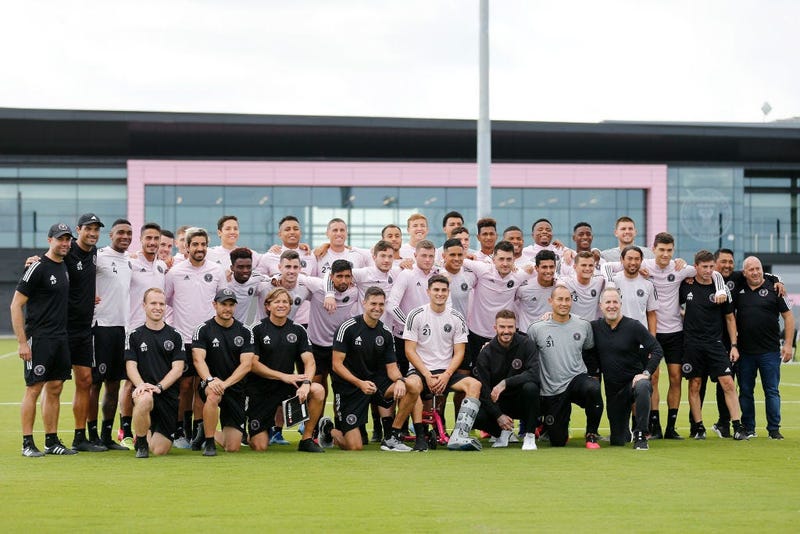
You may not be keen on this, given that the topic is American soccer as opposed to soccer in America, which is a hell of a lot healthier because it's about exposing this country to the world's game as opposed to making teams in American cities, but the kids are talking smack again, and this must be dealt with.
Major League Soccer, celebrating its 25th year of defying all the predictions of death, has two of its younger (as in newer) owners predicting that the future is theirs, which reminds us that they are the seventh professional soccer league to say that very thing. More specifically, Larry Berg of LAFC and Inter Miami owner Jorge Mas were talking big before the walking had been done.
Berg waved his arms more and shouted louder to reporters in New York as they pimped the start of the new season.
“I think we’ll pass baseball and hockey and be the No. 3 spot in the U.S. behind football and basketball,” Berg predicted of the league's view in 2030, and then in 2045. “25 years is a long time from now, but I can say with tremendous confidence that LAFC will be (by then) the best team in the best league in the world.”
First, soccer shouldn't matter where it sits relative to baseball or hockey, let alone basketball or football. It has gotten to where it is in the U.S. as its own stand-alone, thriving in some cities, struggling in others, and the Lego battleground of we're-bigger-than-you is largely senseless posturing. Second, LAFC won't be the best team in the world ever until it starts spending like the bigliest big clubs in the world, and one suspects that the other 60-some-odd teams in MLS will brake those ambitions by pointing out that MLS is an owners' league, based on cost controls and real estate.
As for Mas, who is very definitely named the way MLS is working these days — "mas" meaning more:
“I think the MLS will be one of the top sports leagues in the United States,” he said. “I think it will be on par or exceed the best leagues in the world, meaning the Premier League or Serie A or La Liga… I think that the MLS 25 years from now will be Premier League-ish, if you want to call it that, on the metrics that leagues are measured by. And I frankly think it will be that on a global scale.”
Again, no. MLS Is not chasing stationary targets in Europe, but leagues better positioned to keep growing at a faster rate by continuing to flood the U.S. with better players and a higher standard of play. MLS is just starting to establish a stride while the top European leagues have been at a sprint for years now and have the added advantage of having made soccer a thing in the U.S. in ways that MLS hasn't yet accomplished.
In other words, the Eurosnobs still have a leg up because Americans not already in the tent will always lean toward the best players and leagues in the world, and they are elsewhere, mostly Europe. It's the Olympic theory — we care about sports we don't care about when they are wrapped in a competition that matters to everyone,
But you have to admire the MLS folks. They are good at avoiding the one problem they haven't made enough of an advancement to solve, namely, creating a platform of homegrown players and managers who can match the world's best at skill and tactics. If the U.S. can solve its supply problems (players that people want to see), they can make an audience that doesn't require comparisons to other sports. There is now room for soccer in the American conscience — has been for awhile, actually — and the real job is to fill that space.
MLS will be the sport Berg and Mas said it can be not in a number of years as much as a number of players. They expand to new cities every six weeks, but until those teams are populated with players who can electrify as well as edify, until they can develop players who entertain better than the retreads with big names, they will not have solved the thing they really need to do to make their league appointment viewing and attending. MLS' true job isn't growth, after all, but housing its own Messis, DeBruynes, Salahs, Mbappes, Van Dijks and de Jongs. That will take a more coherent and unified theory of what MLS ought to want most, namely the advancement of the game, not the values of the owners.
But that's not what we do here, so at 25 years old, MLS will still date a lot before it settles into the thing it needs most to be. And that is not climbing ahead of hockey on some arbitrary what's-cooler list. Soccer in America gets that already. American soccer still has that to learn.
